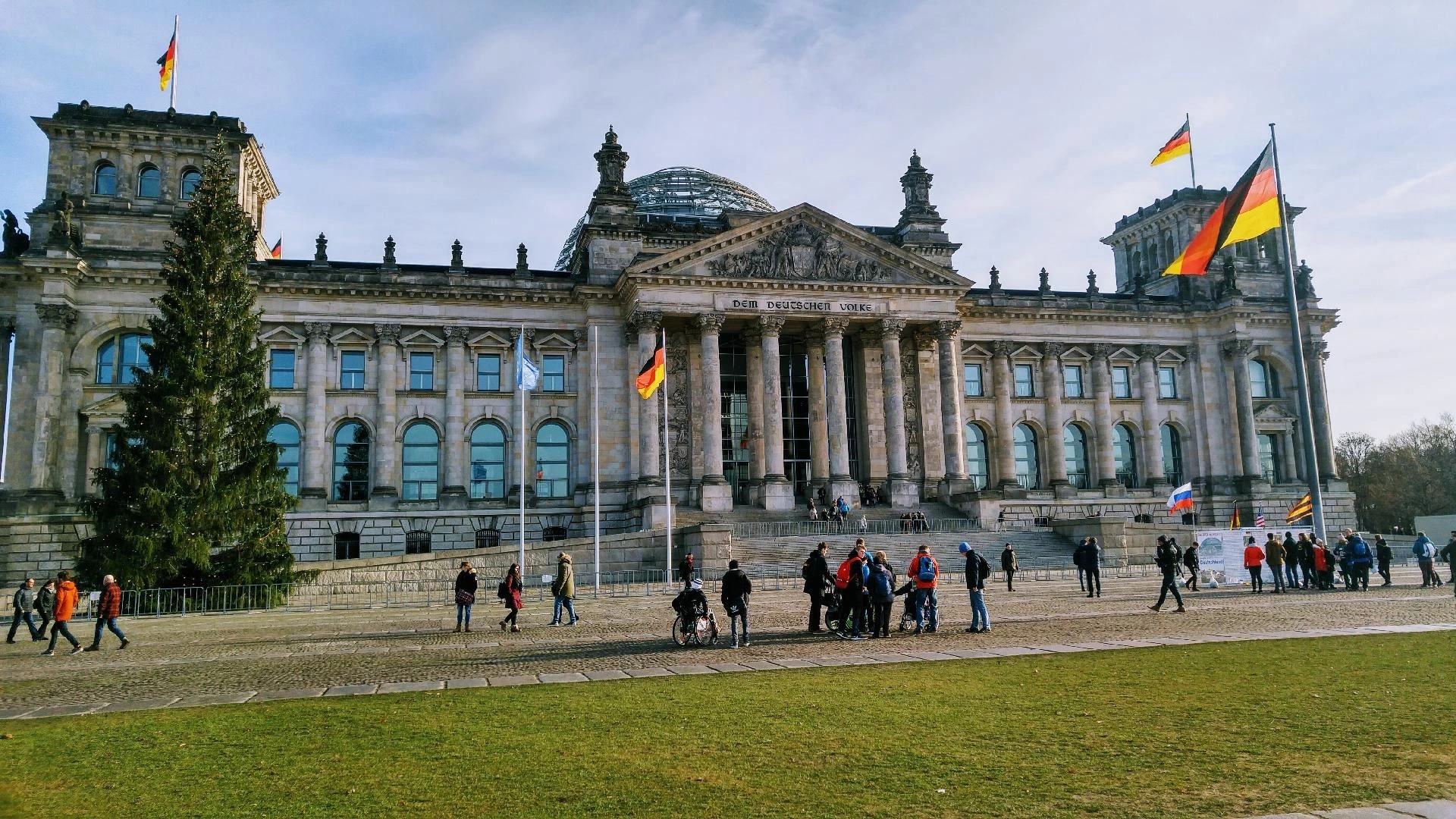Financial & Compliance Translation in GermanyCertified translations for court, visaacademic, and registry use

Popular
cities and regions in Germany
Advantages of Remote
Translation in Germany
High standards in legal translation
German courts, notaries, and immigration authorities only accept translations done by sworn translators (vereidigte Übersetzer). We provide certified translations that meet exact German legal and procedural requirements.
Registration and civil status filings
For marriage, birth registration, or residency procedures in Germany, official translations of personal documents are mandatory. We translate and format certificates for the Standesamt and Ausländerbehörde.
University and job market access
To study or work in Germany, your diplomas, transcripts, and professional qualifications must be officially translated. We handle educational and employment documents for universities and German employers.
High standards in legal translation
German courts, notaries, and immigration authorities only accept translations done by sworn translators (vereidigte Übersetzer). We provide certified translations that meet exact German legal and procedural requirements.
Registration and civil status filings
For marriage, birth registration, or residency procedures in Germany, official translations of personal documents are mandatory. We translate and format certificates for the Standesamt and Ausländerbehörde.
University and job market access
To study or work in Germany, your diplomas, transcripts, and professional qualifications must be officially translated. We handle educational and employment documents for universities and German employers.

Useful articles
and recommendations from experts
All
Popular
Global Transactions
Germany
Paying for Property in Germany from Abroad — Clear, On-Time EUR Transfers
EUR via SEPA, role of the notary, FX and timing essentials, what to budget beyond the price
19.08.2025

All
Popular
Global Transactions
Germany
International Business Payments to Germany — Top 5 Ways to Cut Costs & Speed Settlement
SEPA vs SWIFT, SCT Inst, clean Verwendungszweck, fee+FX clarity, cut-offs and simple compliance
19.08.2025

Popular
Germany
School education in Germany: age of commencement, structure and features
Germany’s school system explained—starting age, key stages, and unique features for families and expats.
07.06.2024

Investment
Germany
Germany Real Estate 2025: Foreign Ownership, Taxes, Cities & Market Overview
Buying Property in Germany as a Foreigner: Laws, Taxes, and Top Investment Cities
08.07.2025

Certified Document Translation in Germany
Why document translation matters in Germany
Germany has one of the most regulated and documentation-heavy administrative systems in Europe. Whether you're applying for a residence permit, enrolling in a university, registering a marriage, or starting a business, proper documentation is essential — and in almost all official procedures, documents in a foreign language must be submitted with certified German translations. These are not informal translations but must be done by sworn translators (vereidigte Übersetzer), registered with a German court and authorized to produce legally valid translations.
At VelesClub Int., we provide certified and sworn document translation services tailored to the specific requirements of German authorities, courts, universities, and businesses. We support clients through the entire process — from understanding local requirements to formatting the document correctly and delivering certified translations accepted across all German regions and sectors.
When and where translations are required
Document translation is required in a wide range of contexts in Germany. Some of the most common include:
- Immigration procedures: Applying for a residence permit (Aufenthaltstitel), naturalization, or visa extension requires translation of civil status documents like birth certificates, marriage certificates, police clearance, and financial records.
- Marriage and civil registration: If you are getting married in Germany, registering a birth, or filing for divorce, you will need certified German translations of foreign civil documents for submission to the Standesamt (civil registry office).
- Education and academic recognition: German universities and academic recognition offices (Anabin, ZAB) require officially translated diplomas, transcripts, letters of recommendation, and language certificates as part of the admissions or validation process.
- Employment and qualification recognition: Employers and credential evaluation agencies require translated employment histories, job references, vocational certificates, and licenses for job applications or qualification recognition (Berufsanerkennung).
- Legal procedures: If you are involved in court proceedings, all foreign-language documents (evidence, contracts, prior rulings) must be submitted with sworn German translations accepted by German courts.
- Real estate and contracts: Foreign buyers or tenants in Germany often need translations of lease agreements, property deeds, proof of funds, and identity documents for submission to notaries and real estate agents.
- Business and corporate filings: When forming a company, registering with the Handelsregister, or submitting corporate documents to the tax office or chamber of commerce, translations of statutes, contracts, and certificates may be required.
In all these cases, translations must meet strict formatting, terminology, and certification rules. Incorrect or unofficial translations can lead to delays, rejection of your application, or legal complications.
Local regulations and document requirements
Germany’s legal framework for document translation is precise and varies by state and authority. However, some rules apply nationwide:
- Sworn translators only: For most legal, immigration, and court-related procedures, only sworn translators (vereidigte Übersetzer) recognized by a German court can provide valid translations. These professionals have passed state certification exams and are registered in the official directory.
- Certification requirements: The translation must be stamped, signed, and accompanied by a certification declaration (Beglaubigung), indicating that the translation is a true and accurate rendering of the original.
- Exact formatting: Many German authorities require that the translation mirror the layout of the original document, including tables, headings, seals, and signatures. Any annotations or missing elements must be clearly marked.
- Language and terminology norms: Translations must use legal and procedural terminology that aligns with German administrative and legal standards, especially in court, tax, or academic contexts.
- Use of OFFI or state translators: In rare cases, certain high-level federal offices or court proceedings may require translations from specific state-authorized translators. However, in nearly all cases, a sworn translator with court authorization is fully acceptable.
Each Land (federal state) may have slight variations in accepted procedures — for instance, Bavaria or Saxony may differ in format requirements from Berlin or Hamburg — but our translators are familiar with the full range of regional nuances.
Our translation process and quality control
At VelesClub Int., our certified translation process is designed to meet German legal standards while offering efficiency and clarity to the client. Here’s how we work:
- Step 1 – Initial assessment: We review your documents and identify their purpose, the authority receiving them, and whether they require sworn translation, apostille, or additional notarization.
- Step 2 – Translator assignment: The documents are assigned to a sworn translator specialized in the relevant field — legal, academic, immigration, corporate, or medical.
- Step 3 – Translation: The translator renders a precise German version, preserving structure and legal equivalency. Seals, stamps, or handwritten notes are also rendered or explained per German translation standards.
- Step 4 – Internal review: A second linguist or editor checks the document for accuracy, consistency, and alignment with the original. For legal documents, a legal consultant may review terminology.
- Step 5 – Certification and formatting: The document is finalized with the sworn translator’s certification statement, signature, and official seal. Notarization or an additional declaration may be added upon request.
- Step 6 – Delivery: You receive a PDF scan of the certified translation and, if needed, a physical copy for submission to German authorities.
Turnaround time for most documents is 2–4 business days. Urgent processing is available depending on the length and complexity of the document. We maintain full confidentiality and comply with GDPR standards.
Types of documents we handle
Our certified translators work with a wide variety of documents commonly required in Germany, including but not limited to:
- Personal and civil documents: Birth certificates, marriage and divorce certificates, death certificates, ID cards, passports, residence titles, police clearances (Führungszeugnis)
- Education and training: High school diplomas, university degrees, academic transcripts, certificates of attendance, language proficiency certificates (e.g., TOEFL, IELTS, TestDaF)
- Employment and qualification: Employment contracts, letters of reference, apprenticeship certificates, professional licenses, vocational training records
- Legal and court documents: Court rulings, legal complaints, contracts, affidavits, power of attorney, settlement agreements
- Medical records: Medical reports, diagnostic records, insurance statements, vaccination certificates
- Financial and corporate documents: Bank statements, tax returns, audit reports, balance sheets, company formation documents, shareholder agreements
- Property and notarial papers: Real estate purchase agreements, lease contracts, land registry extracts (Grundbuchauszug), building permits
If your document is not on this list, feel free to send it to us for a free assessment. We likely already work with similar files and can confirm if it qualifies for certified translation in Germany.
Why choose VelesClub Int. for translation
VelesClub Int. stands out by combining linguistic precision, procedural knowledge, and client-focused service. Here’s why clients across Germany trust us:
- Sworn and certified translators: We only work with court-recognized sworn translators with proven experience in legal, academic, and business sectors.
- Germany-wide validity: Our translations are accepted by German courts, universities, immigration offices, and commercial registries across all federal states.
- Multi-sector expertise: Whether it’s a university in Munich, a court in Berlin, or a tax office in Cologne — we adjust our translation to the specific sector.
- Fast delivery and support: We ensure short turnaround times without sacrificing accuracy, and we provide guidance on how and where to submit the documents.
- Data protection and confidentiality: Your documents are handled securely under GDPR-compliant protocols. All staff and translators are under NDA.
Start your translation with us
To get started, send us a scanned copy or photo of your document along with a short note describing its purpose (e.g., for marriage, university, court filing). We’ll respond with a quote, turnaround time, and next steps.
Whether you’re navigating immigration, legal procedures, education, or business in Germany, we help make your documentation compliant and accepted the first time — no delays, no rejections. Get your certified German translation with VelesClub Int. today.







